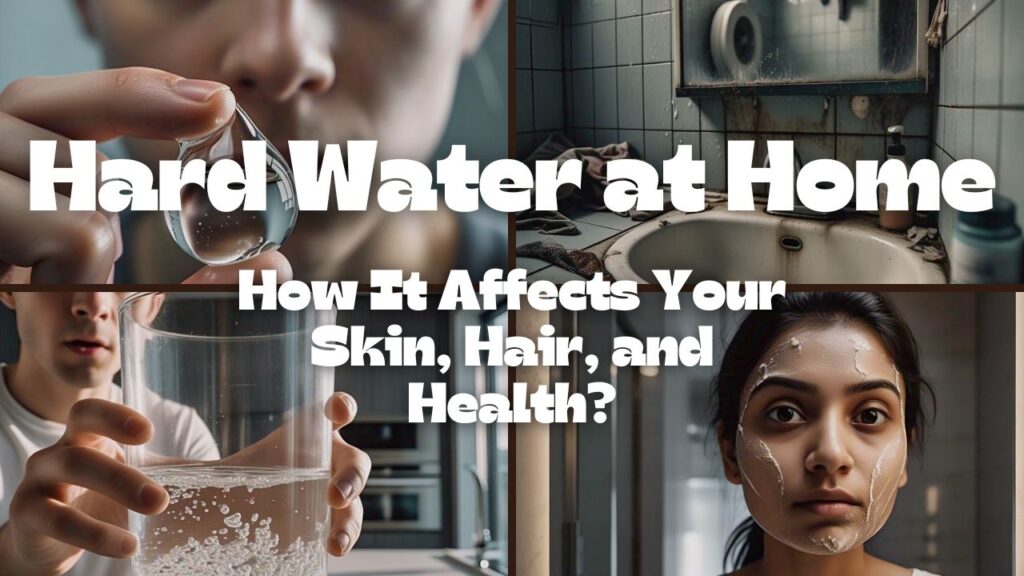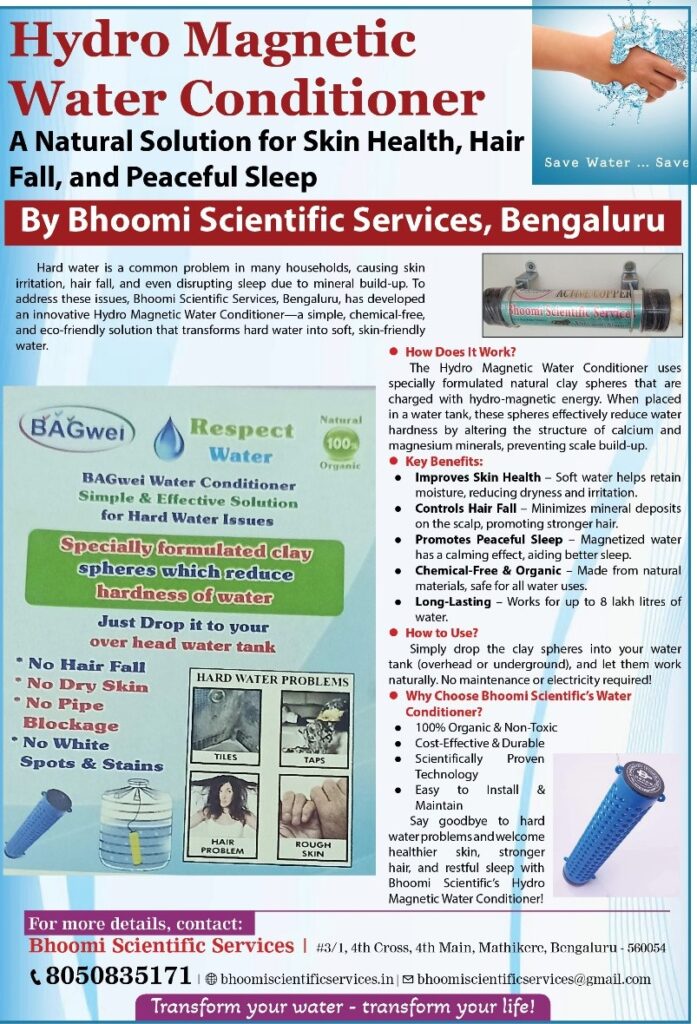Hard Water at Home – How Hard Water Affects Your Skin, Hair, and Health? Is Hard Water Ruining Your Appliances?
When you turn on the tap at home, you probably don’t give much thought to what’s in your water—especially if it looks clear and tastes fine. However, many households deal with what’s known as hard water, and it can have a surprisingly big impact on your skin, hair, and overall health.


Hard water is more than just a minor inconvenience—it could be silently damaging your home appliances and costing you money in repairs and energy bills. If you’ve noticed strange behaviour from your dishwasher, washing machine, or even your water heater, hard water might be to blame.
What Is Hard Water?
Hard water contains high levels of dissolved minerals, mainly calcium and magnesium. While not dangerous to drink, these minerals can build up over time, affecting everything from your home appliances to your personal hygiene.
How Hard Water Affects Your Skin
• Dryness and Irritation: The minerals in hard water can strip away the skin’s natural oils, leading to dry, itchy, and irritated skin. This is especially noticeable in people with sensitive skin or conditions like eczema and psoriasis.
• Clogged Pores: Hard water doesn’t rinse off soaps and cleansers completely. This can leave a residue on your skin, which clogs pores and contributes to acne or breakouts.
• Premature Aging: Constant exposure to hard water can damage your skin’s protective barrier, which may accelerate the appearance of fine lines, wrinkles, and a dull complexion.
Effects of Hard Water on Hair
• Dry and Frizzy Hair: Just like your skin, your hair can become dry and brittle from hard water. The minerals make it difficult for moisture to penetrate the hair shaft, leaving it rough and dull.
• Hair Thinning and Breakage: Over time, mineral buildup on the scalp can block hair follicles, leading to thinning hair and even hair fall.
• Difficult Styling and Poor Texture: Hair washed with hard water often feels heavy, flat, and hard to manage. It can also interfere with hair color treatments, making them fade faster.
General Health Concerns
While drinking hard water isn’t typically harmful, some people may experience digestive discomfort if they’re sensitive to the high mineral content. Additionally, constant exposure to mineral-rich water could aggravate existing skin conditions, leading to flare-ups.
How Hard Water Damages Appliances
• Limescale Build-up: The most common issue with hard water is limescale, a chalky white substance left behind when hard water evaporates. Over time, limescale coats the insides of appliances like kettles, dishwashers, washing machines, and water heaters. This buildup reduces efficiency, causes clogs, and can lead to early breakdowns.
• Reduced Efficiency: Limescale acts like insulation on heating elements. This means your water heater must work harder to heat water, increasing your energy consumption and utility bills.
• Clogged Pipes and Valves: Hard water can cause narrowing in pipes and block valves inside your appliances. This can reduce water flow, damage components, and affect appliance performance.
• Soap Scum and Residue: Hard water reduces soap’s ability to lather, leading to soap scum in dishwashers and washing machines. This build-up can cause unpleasant smells, dull laundry, and leave streaks on dishes and glassware.
Signs You Have Hard Water at Home
• Itchy, dry skin after bathing
• White or chalky deposits on faucets and showerheads
• Clothes feeling stiff or looking faded after washing
• Water heater making popping or rumbling noises
• Reduced water pressure or flow
• Spotty dishes and glassware after a dishwasher cycle
• Soap not lathering well or residue left behind
What You Can Do
1. Install a Water Softener: A whole-house water softening system can remove excess calcium and magnesium, protecting your skin, hair, and plumbing.
2. Use Clarifying Hair and Skin Products: Shampoos and cleansers made to combat hard water effects can help reduce build-up and irritation.
3. Moisturize Regularly: Keeping your skin well-moisturized after showers can counteract dryness caused by hard water.
4. Rinse with Filtered or Bottled Water: For sensitive skin and hair, a final rinse with filtered water can make a noticeable difference.
Hard water may seem harmless, but its long-term effects on your skin, hair, and health shouldn’t be overlooked. By understanding the signs and taking simple steps to protect yourself, you can maintain better hygiene, feel more comfortable, and even save money on skincare and haircare products.


Murthy
Waterist & Researcher
Bhoomi Scientific Services, Mathikere, Bengaluru 560054
Ph: 80508 35171
Bhoomi Scientific Company – Order Online













